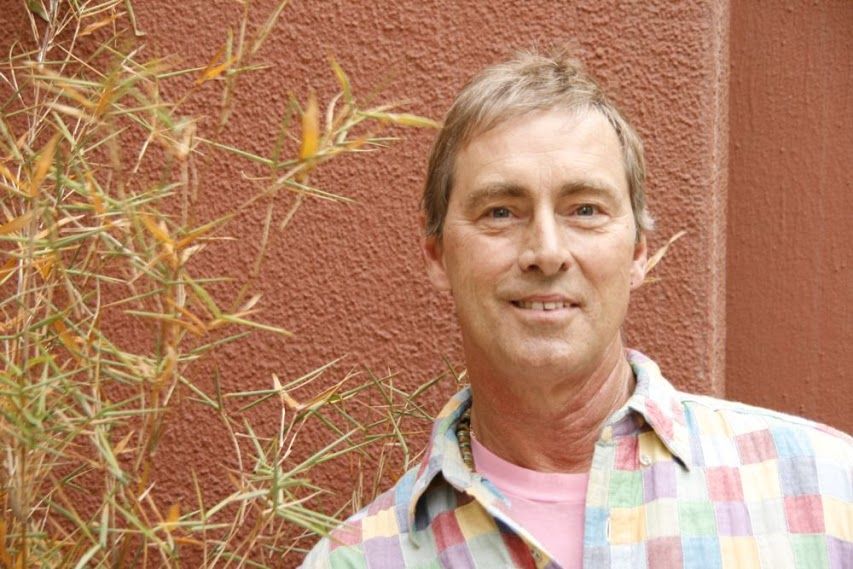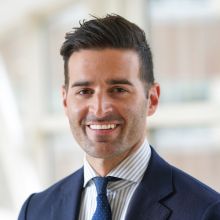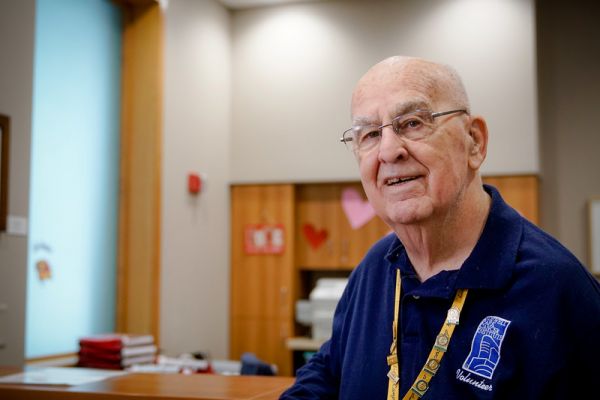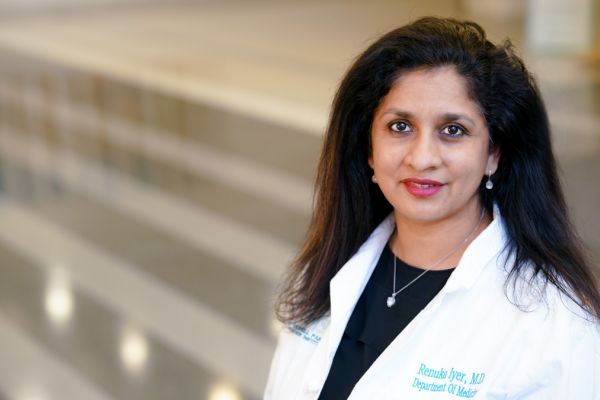Bruce Werner likes to describe himself as an old hippie, an easy-going musician and a Grateful Deadhead who has always been content to go with the flow.
When opportunities presented themselves, both personally and professionally, his attitude has been to embrace change and challenges. His open-spirit attitude to life has brought him a long and happy marriage to his wife, Mary Gin, and he’s been part of several successful musical groups. Most recently, when faced with liver cancer, he had the same open spirit as he searched for the best-case scenario.
Bruce’s journey with cancer started when he moved from San Francisco to West Seneca, New York, in 2013. A chronic carrier of hepatitis C (Hep C) since his early 30s, Bruce proactively sought a specialist for his healthcare. “When I moved here, I looked for a doctor to treat my Hep C, and fortunately I met Dr. Anthony Martinez, who helped me manage my health with Sovaldi®, a breakthrough medication. I was one of the first people in the area to be approved for treatment,” says Bruce.
After six months on Sovaldi, Bruce showed no signs of the virus in his bloodstream, but Dr. Martinez discovered he had a highly elevated AFP (alphafetoprotein) number, a blood marker for liver cancer. “A healthy person is typically in the single digits,” explains Bruce, “and I was over 2,000. We started talking about options for a liver transplant, and Mary Gin’s sister generously offered to be tested as a living donor.”
After four days of rigorous workups at the Cleveland Clinic, “with tests I didn’t know existed,” Bruce was told that two lesions found in his liver were cancerous and a third lesion had been detected in the portal vein outside his liver, which made him ineligible for a transplant.
Microbeads to Shrink and Destroy Tumors
Transarterial chemoembolization (TACE) was recommended. The minimally invasive procedure is done by injecting small particles coated with chemotherapeutic drugs through a catheter into an artery. The “microbeads” release the drugs into the artery, blocking off the blood supply to cancer cells and starving them to help shrink and destroy tumors.
“I was happy to avoid transplant surgery, and I learned that the TACE procedure was available at Roswell Park, which meant I could be treated at home, which was my preference,” says Bruce.
Working with a team that included Renuka Iyer, MD, Co-Director of Roswell Park’s Liver and Pancreas Tumor Center, and Michael Petroziello, MD, Department of Diagnostic Radiology, Bruce, at age 66, began treatment for liver cancer using the TACE procedure. “The medical staff’s diligence and commitment to me was so impressive,” recalls Bruce. “After the first hit, the lesions were reduced and my AFP numbers plummeted from 2000 to levels in the 30s and 40s.”
Another round of TACE followed two years later, and then a third treatment late in 2018.
“My AFP numbers are back to normal (4.5),” reports Bruce, whose positive outlook truly comes through when he describes his cancer story. While he felt he was relatively calm throughout his diagnosis and treatments, it was harder for his wife, Mary Gin. “She had lost close family members to cancer, and the first time I did the TACE, Mary Gin was a wreck. But she’s also a professional investigator, so she knew exactly how to take charge, get information and make arrangements. It was tougher on her than it was for me, but by the second time I had the procedure, she was more relaxed about it. And now it just feels like a normal part of our lives.”
Never miss another Cancer Talk blog!
Sign up to receive our monthly Cancer Talk e-newsletter.
Sign up!Finding “a Better Place” Through Counseling
As positive as he felt throughout treatment, Bruce says he has benefited even more from the counseling offered at Roswell Park. “I took advantage of that for at least a year. Meeting with Dr. Jennifer Hydeman, formerly of Roswell Park, was great. With my Grateful Dead attitude, it was an easy conversation. It turns out it was really beneficial to have a professional who could help me open up,” says Bruce — although he admits he gave therapy a try reluctantly, and only at Mary Gin’s encouragement.
“The mental clarity, sense of accomplishment and seeing things from different perspectives helped me feel better. I feel like I’m in a better place and will be for a while,” says Bruce, who continues to schedule appointments with his therapist when he needs a tune-up.
For now, he’s feeling great. “Everything looks good. I could be the poster boy for early detection and treatment.”
Bruce Werner is reflective and appreciative when he thinks about his life. “Cancer is something I’ll probably die with but not die from. I’ve had a great life and I’ve been able to hang out for the last 30 years with a beautiful, wonderful woman.
“I did not have any lingering effects from the TACE other than mild flu symptoms for about a week. I’m 69 years old, so I’m slowing down a bit, but I feel great. I feel normal.”
Editor’s Note: Cancer patient outcomes and experiences may vary, even for those with the same type of cancer. An individual patient’s story should not be used as a prediction of how another patient will respond to treatment. Roswell Park is transparent about the survival rates of our patients as compared to national standards, and provides this information, when available, within the cancer type sections of this website.




